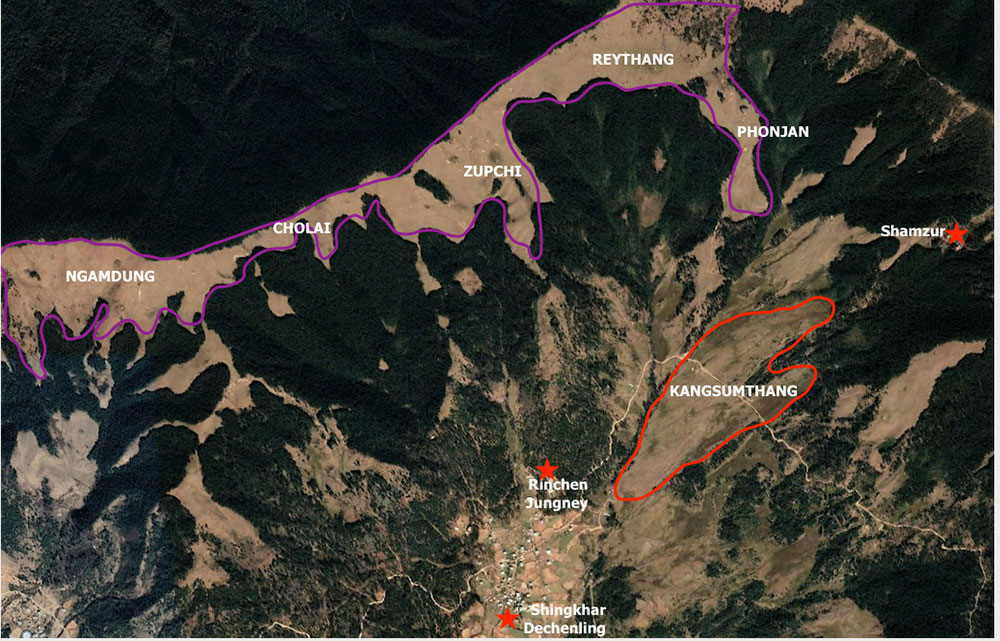The recent media report about a major solar project of some 80000 panels covering over 100 acres of Shingkhar’s Kangsumthang pastures is a disturbing news. In 2011, a golf course project on the same spot was withdrawn for ecological, social, and cultural reasons. The Ministry of Agriculture and Forests and the National Land Commission at that time stopped the golf course saying the meadow is an important wetland and community pasture.
The Kangsumthang meadow not only serves as watershed and village commons but has spiritual and cultural significance being part of the sacred landscape covering the holy sites of Dechenling, Rinchen Jungney and Shamzur. Stating these reasons, the villagers (34 out 39 households) submitted a petition to the Gewog office to cancel the solar project. Aware of the project’s national benefit, they suggested the spacious highlands from Rethang to Ngamdung for the project as these places have even better sunlight and are far from the village.
It appears that the project is funded by ABD and ADB clearly has safeguard policies for both environment and indigenous people recognizing their cultural integrity and their rights to ancestral land and resources. The locals of Shingkhar have voiced their concerns that their livelihood through dairy farming and tourism will be seriously affected by the project. Is the project viable, then, and can it succeed with such local resistance?
As a well travelled researcher, I can vouch that Shingkhar remains as one of the few beautiful valleys in Bhutan with serene and sacred landscape not marred by chaotic development. I dread to think how 80,000 solar panels covering an area equivalent to some 70 football fields would disfigure Shingkhar’s landscape of green meadows, holy sites and an idyllic village. No doubt we must support a sustainable renewal energy project of national importance but do we have to use such a sacred and ecological site for it? Could the local suggestion to use the upper reaches of the valley offer a better and more effective venue for project? One can only hope that the project realizes with minimum impact on nature and culture in the true spirit of GNH and find a win-win situation for both the nation and the local community.
Contributed by
Dr Karma Phuntsho


